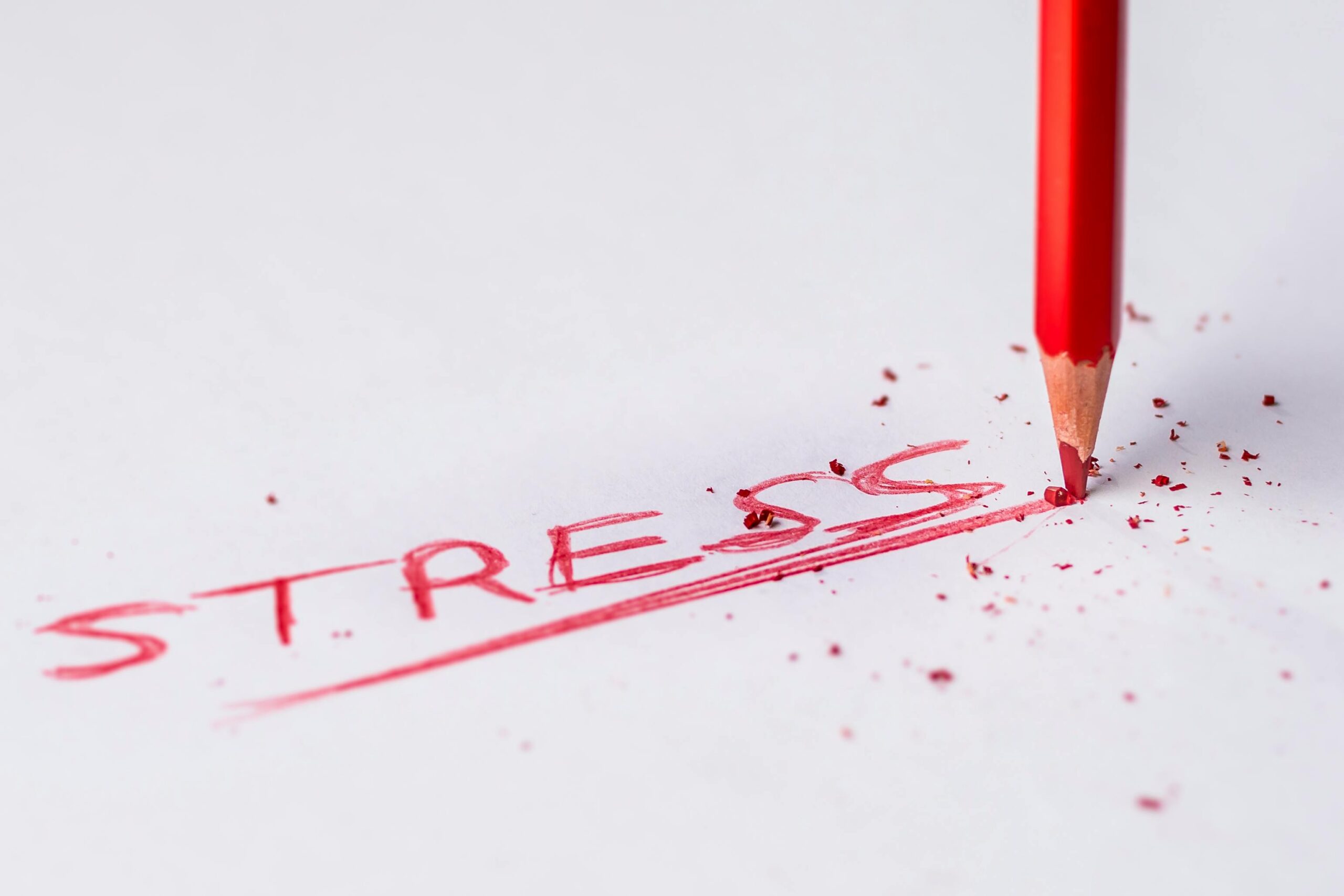Stress and Weight Gain: Strategies for Stress Management and Weight Loss

Table of Contents:
Overview
Stress isn’t just a mental burden; it can also wreak havoc on your waistline.
Understanding the connection between stress and weight gain is crucial for effective weight management.
In this article, we’ll explore strategies to manage stress effectively and support your weight loss journey.
Let’s dive in and take control of both your stress levels and your waistline.
Understanding Stress and Its Impact on Weight
Stress isn’t just an inconvenience; it’s a physiological response that can have significant implications for your weight. When you’re stressed, your body releases cortisol, often referred to as the “stress hormone.” This hormone plays a vital role in the fight-or-flight response, but prolonged exposure to high levels of cortisol can lead to weight gain.
One way stress affects weight is through its impact on appetite regulation. Cortisol triggers cravings for high-calorie, high-sugar foods, leading to emotional eating episodes. Additionally, stress can disrupt the balance of other hormones involved in appetite control, such as ghrelin and leptin, further contributing to overeating.
Moreover, stress can affect where your body stores fat. Research suggests that chronic stress may promote the accumulation of visceral fat, the type of fat stored around the abdominal organs. Visceral fat is particularly concerning as it is linked to an increased risk of chronic diseases like diabetes and heart disease.
Furthermore, stress can sabotage weight loss efforts by affecting metabolism. High levels of cortisol can slow down metabolism, making it harder for your body to burn calories efficiently. This means that even if you’re eating well and exercising regularly, chronic stress may hinder your weight loss progress.
Beyond cortisol, other stress-related factors can also impact weight management, such as disrupted sleep patterns, emotional eating, and decreased motivation for physical activity. Together, these factors create a challenging environment for those striving to achieve and maintain a healthy weight.
Understanding the link between stress and weight gain is crucial for developing effective strategies for both stress management and weight loss. By addressing stressors and implementing targeted interventions to mitigate their effects, individuals can support their overall well-being and improve their chances of successful weight management.
Identifying Sources of Stress
Stress can lurk in various aspects of daily life, often going unnoticed until it starts taking a toll on your well-being. To effectively manage stress and support your weight loss journey, it’s essential to identify the sources of stress in your life. These sources can be categorized into different areas, including work, relationships, finances, and personal health.
Common sources of stress at work may include tight deadlines, demanding bosses, or conflicts with colleagues. In your personal life, relationship issues, family responsibilities, or major life events like moving or divorce can trigger stress. Financial concerns such as debt, job insecurity, or unexpected expenses can also weigh heavily on your mind.
It’s important to recognize that stress manifests differently for each individual. While some people may feel overwhelmed by work-related stress, others may find family obligations more taxing. Similarly, what causes stress for one person may not affect another in the same way.
To identify your unique sources of stress, pay attention to your physical and emotional responses in different situations. Notice how your body reacts to stressful stimuli and the thoughts and feelings that arise. Keep a journal to track patterns and triggers, helping you pinpoint areas where stress may be most prevalent.
By becoming aware of your stressors, you can take proactive steps to address them and implement effective stress management strategies. This awareness is the first step toward creating a healthier, more balanced lifestyle conducive to both stress reduction and weight loss.
Stress Management Techniques
To effectively manage stress and support weight loss efforts, incorporating various stress management techniques into daily life is essential. Here’s a breakdown of some proven strategies:

Mindfulness and Meditation
Practicing mindfulness meditation can help cultivate awareness of the present moment, reducing stress and promoting relaxation. Set aside a few minutes each day to engage in mindful breathing exercises or guided meditation sessions to calm the mind and alleviate stress.
Exercise and Physical Activity
Regular exercise is a powerful tool for managing stress and improving overall well-being. Engage in activities you enjoy, such as walking, jogging, yoga, or cycling, to release endorphins and reduce stress levels. Aim for at least 30 minutes of moderate-intensity exercise most days of the week.
Relaxation Techniques
Incorporating relaxation techniques like deep breathing exercises and progressive muscle relaxation can help reduce muscle tension and promote a sense of calm. Practice deep breathing by inhaling deeply through your nose, holding for a few seconds, and exhaling slowly through your mouth. Similarly, progressive muscle relaxation involves tensing and relaxing different muscle groups to release built-up tension.
Time Management and Prioritization
Feeling overwhelmed by tasks and responsibilities can contribute to stress levels. Take control of your schedule by practicing effective time management techniques and prioritizing tasks based on importance and urgency. Break tasks into smaller, manageable steps and allocate time for relaxation and self-care activities.
By integrating these stress management techniques into your daily routine, you can better cope with stressors and create a supportive environment for weight loss. Experiment with different strategies to find what works best for you, and remember to prioritize self-care to maintain overall well-being.
Healthy Coping Mechanisms
Stress can often trigger emotional eating, leading to weight gain and derailing your weight loss efforts. However, there are healthier ways to cope with stress that don’t involve turning to food. Here are some suggestions:
Journaling
Take a few minutes each day to jot down your thoughts and feelings in a journal. Writing can be a therapeutic way to express yourself, process emotions, and gain clarity on stressful situations.
Spending Time in Nature
Nature has a calming effect on the mind and body. Take a break from your daily routine and spend time outdoors. Whether it’s a walk in the park, a hike in the woods, or simply sitting by a body of water, connecting with nature can help reduce stress levels and promote relaxation.
Seeking Social Support
Don’t hesitate to reach out to friends, family, or a support group when you’re feeling overwhelmed. Talking to someone you trust can provide emotional support, encouragement, and a fresh perspective on your challenges.
Engaging in Hobbies and Activities
Dedicate time to activities that bring you joy and fulfillment. Whether it’s painting, playing music, gardening, or practicing yoga, engaging in hobbies can distract you from stressors and boost your mood.
By incorporating these healthy coping mechanisms into your daily routine, you can effectively manage stress and prevent emotional eating. Experiment with different strategies to find what works best for you, and remember to prioritize self-care during challenging times.
Incorporating Stress Management into Weight Loss Goals
When embarking on a weight loss journey, it’s essential to recognize the role that stress plays in your overall well-being. Here are some practical tips for integrating stress management techniques into your weight loss plan:
Set Realistic Goals
While weight loss is a common goal, it’s crucial to set realistic expectations for yourself. Instead of focusing solely on the number on the scale, consider setting goals related to stress reduction, such as incorporating mindfulness practices or increasing physical activity.
Prioritize Self-Care
Make self-care a priority by carving out time each day for activities that promote relaxation and reduce stress. Whether it’s taking a warm bath, practicing yoga, or enjoying a hobby, investing in self-care can have a positive impact on both your mental and physical health.
Practice Mindful Eating

Mindful eating involves paying attention to the present moment and being aware of your thoughts, feelings, and sensations while eating. By practicing mindful eating techniques, such as slowing down during meals, savoring each bite, and listening to your body’s hunger and fullness cues, you can reduce stress-related eating and make healthier food choices.
Stay Active
Regular physical activity is not only beneficial for weight loss but also for stress management. Incorporate exercise into your daily routine, whether it’s going for a walk, taking a fitness class, or practicing yoga. Exercise releases endorphins, which are natural mood lifters and can help alleviate stress and anxiety.
By incorporating these stress management techniques into your weight loss plan, you can create a more holistic approach to achieving your health and wellness goals. Remember that progress takes time, so be patient with yourself and celebrate the small victories along the way.
Conclusion
In conclusion, stress management is a crucial component of any successful weight loss journey. By understanding the impact of stress on our bodies and implementing effective stress management techniques, we can better support our overall well-being while working towards our weight loss goals.
Throughout this article, we’ve explored the relationship between stress and weight gain, identified common sources of stress, and discussed practical strategies for managing stress without turning to food. From mindfulness and relaxation techniques to incorporating self-care and physical activity into our daily lives, there are numerous ways to effectively manage stress and support our weight loss efforts.
It’s important to recognize that achieving sustainable weight loss requires a holistic approach that addresses both physical and emotional well-being. By prioritizing stress management alongside healthy eating and exercise habits, we can create a balanced lifestyle that promotes long-term success and overall health.
Remember, progress may not always be linear, and setbacks are a natural part of the journey. Be kind to yourself, stay focused on your goals, and celebrate your accomplishments along the way. With dedication, perseverance, and a commitment to self-care, you can achieve your weight loss goals and cultivate a happier, healthier life.






